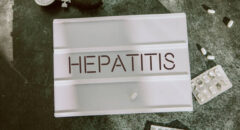
Hepatitis C is a viral illness that targets the liver and may result in severe liver damage, such as cirrhosis, liver cancer, and liver failure. It is a widespread illness that affects millions of individuals globally. Hepatitis C, fortunately, is curable with antiviral medicines.
This post will look at the whole hepatitis C treatment process, from diagnosis to recovery.
Hepatitis C Diagnosis
The first step in treating hepatitis C is to diagnose it. Blood tests that seek antibodies to the virus and measure the quantity of virus in the blood may be used to diagnose hepatitis C (viral load).
A blood test that checks for the presence of antibodies to the virus is the most often used test to diagnose hepatitis C.
The individual will be sent to a specialist for further testing if the test results are positive.
RELATED: Day 1: Just Been Diagnosed with Hep C
Hepatitis C Staging
Once a person has been diagnosed with hepatitis C, the illness must be staged.
The phrase "disease staging" refers to evaluating the extent of liver damage produced by the infection. This is significant because the degree of liver damage will dictate the treatment strategy and the likelihood of a successful cure.
Hepatitis C may be staged using various techniques, including liver biopsy, ultrasonography, and blood testing.
The most precise way of staging is the liver biopsy, but it is also the most invasive.
Other approaches, such as ultrasound and blood testing, are less intrusive and less precise but give valuable information.
Hepatitis C Treatment
After being diagnosed and staged for hepatitis C, the next step is to begin treatment.
The therapy objective is to cure the condition while preventing major liver damage.
Antiviral drugs are the main therapy for hepatitis C. They operate by interfering with the virus and stopping it from multiplying.
Interferon and ribavirin, which are administered in combination treatment, are the most regularly used antiviral drugs for hepatitis C. Direct-acting antivirals (DAAs), which are newer and more potent antiviral drugs, are currently the chosen therapy for the majority of people with hepatitis C. DAAs cure patients faster and have fewer negative effects than interferon and ribavirin.
The duration of hepatitis C therapy is determined by the antiviral medicine used, the stage of the illness, and the exact kind of hepatitis C virus present.
Most people with hepatitis C will be treated for 8 to 12 weeks. Following therapy, the individual will have follow-up testing to see whether the virus has been eliminated from their body. If the infection has been eradicated, the individual is termed cured.
RELATED: What Can I Expect Over Time With Hepatitis C?
Hepatitis C Remission
The next stage after being cured of hepatitis C is recuperation. Hepatitis C recovery is taking precautions to prevent the illness from returning and to preserve healthy liver function. Adopting a healthy lifestyle, such as eating a balanced diet, exercising frequently, and avoiding alcohol and other dangerous drugs, may be part of this. It is also critical to regularly see a doctor for check-ups and evaluate liver function.
To summarize, treating hepatitis C is a process that begins with diagnosis, then progresses to the disease stage and treatment with antiviral drugs. Because very potent antiviral drugs are now available, the cure rate for hepatitis C is greater than ever.
Following treatment, preserving excellent liver function and preventing the condition from returning is critical. If you believe you have been exposed to hepatitis C, you should be tested and, if required, seek treatment.
BlackDoctor.org is a health information website on various health topics, including Hepatitis C. We have articles and other resources that provide information on Hepatitis C, including symptoms, causes, risk factors, and treatment options. We also provide information on how to prevent the spread of Hepatitis C and maintain good liver health.
Keep reading on blackdoctor.org to learn more.









